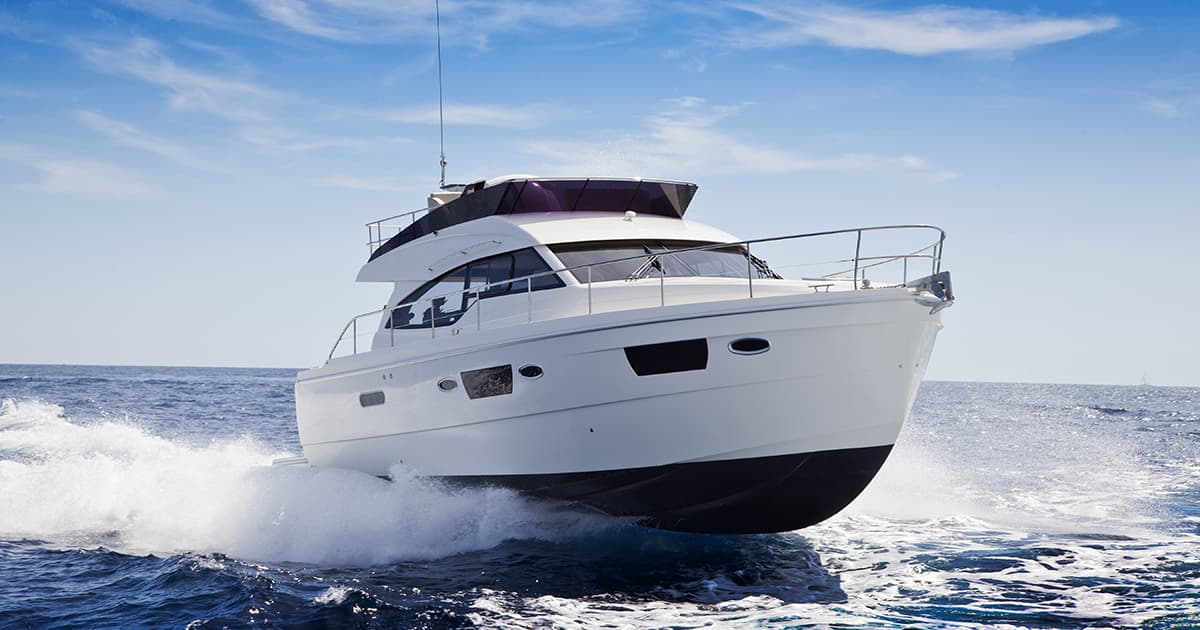Top Factors that Affect Your B.C. Boat Insurance

Larger and more expensive boats typically have higher insurance premiums. So, size does matter for your B.C. boat insurance.
What is the size of a large boat? Typically, big boats or "yachts" are 27 feet (8.2 metres) and larger. Small boats are considered to less than 30 feet long (about 9 metres)
Here are some other factors that affect your boat insurance in British Columbia:
- Type and size of boat Determine your boating needs and choose a boat that fits your budget, both for purchase and insurance. Remember that the size of your boat plays a role in your boat insurance.
- Usage and location: Where and how often you use your boat affects your insurance rates. Boats used in coastal waters may have higher premiums due to the increased risk of hurricanes and other severe weather. Be honest about your intended usage and your B.C. location when getting quotes and consider areas with lower risks if possible.
- Experience and claims history: Experienced B.C. boaters without claims histories generally receive lower premiums. Take boating safety courses to improve your skills and potentially lower your insurance costs.
- Coverage and deductibles: The extent of coverage and the amount of your deductible will impact your premium. Consider higher deductibles to lower your premium but ensure you can afford the deductible in the event of a claim.
- Safety equipment: Boats in British Columbia that are equipped with safety features like fire extinguishers, life jackets, and GPS tracking can qualify for insurance discounts. Invest in high-quality safety equipment and keep it well-maintained to qualify for potential discounts and ensure safety.
- Set a budget: Determine how much you’re willing to spend, not just on the purchase price but also on maintenance, storage, and insurance.
- Research different types of boats: Understand the different types of boats (e.g., sailboats, motorboats, fishing boats) and choose one that fits your intended use on B.C. waters.
- Inspect the boat: Conduct a thorough inspection or hire a marine surveyor to assess the condition of the boat, especially if buying used.
- Test drive: Always take the boat for a test drive to ensure it handles well and meets your expectations.
- Check the history: If buying a used boat in British Columbia, check its history for any past damages, repairs, or insurance claims.
- Understand the total cost of ownership: Factor in ongoing costs such as fuel, maintenance, storage, and insurance. Do you need to store your boat over the winter?
- Consider financing options: Look into different financing options if you’re not paying cash. Compare rates and terms from various lenders.
- Negotiate the price: Don’t hesitate to negotiate the price with the seller. Do your research to know the fair market value of the boat.
- Get the right insurance: Shop around for B.C. boat insurance, ensuring you get coverage that matches your needs. Compare quotes from multiple insurers.
- Training: If you’re a new boat owner, you should take boating safety and handling courses to improve your skills and potentially reduce your insurance costs.
How to buy a boat
We provide coverage for fishing boats, pontoons, yachts, watercrafts, cruise, commercial vessels and more. Western Financial Group is an award-winning brokerage. Our B.C. boat insurance experts will get you the right boat insurance so that you’re covered when you’re on the water.



